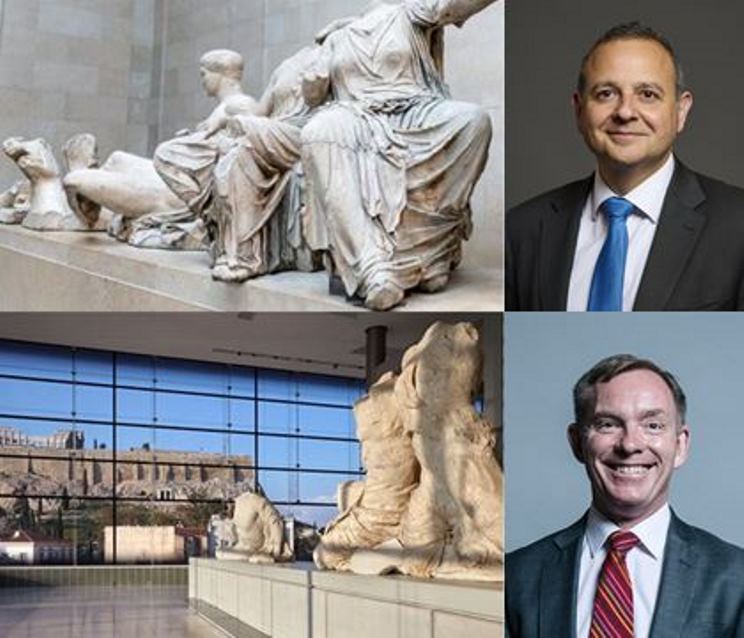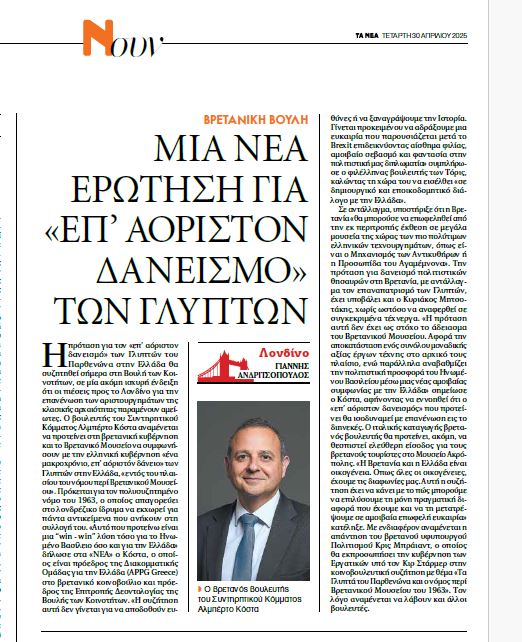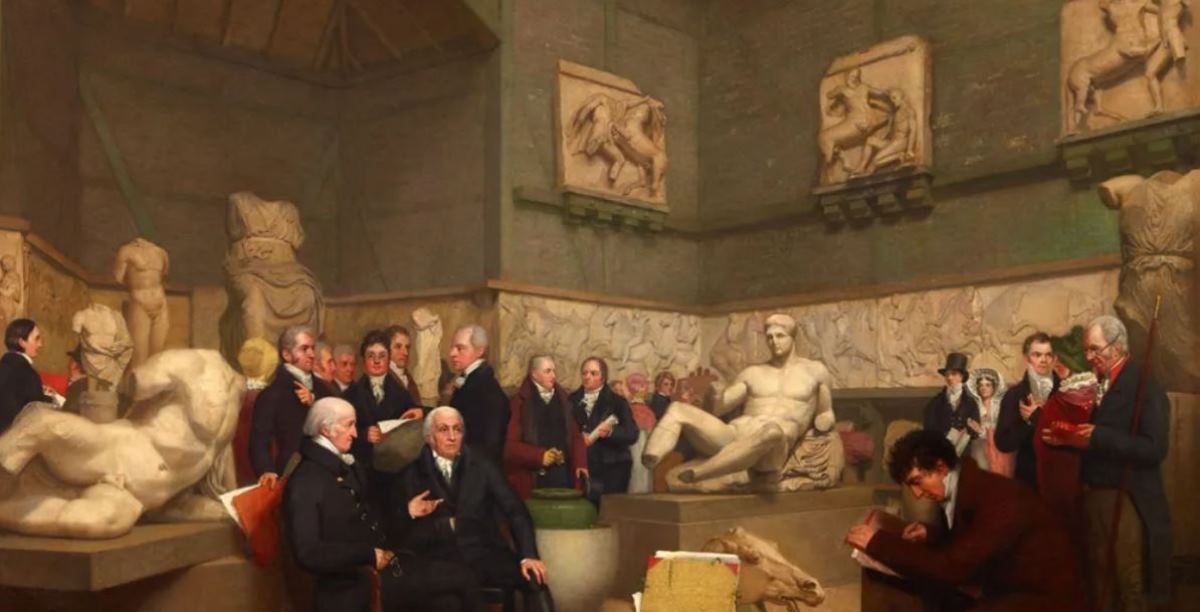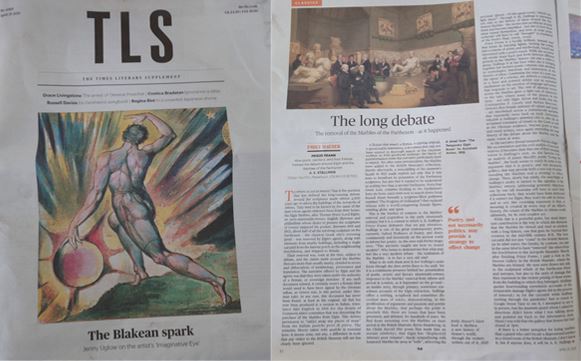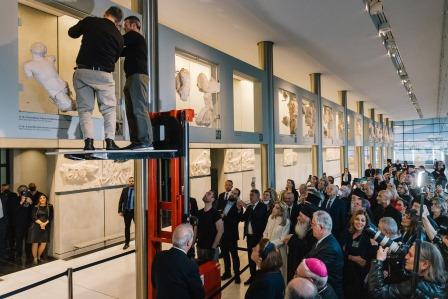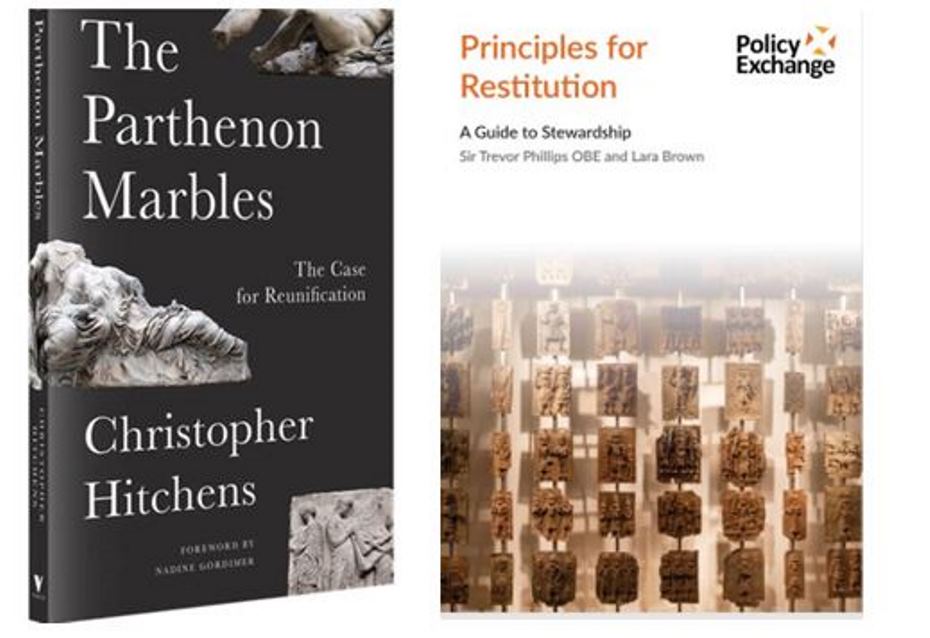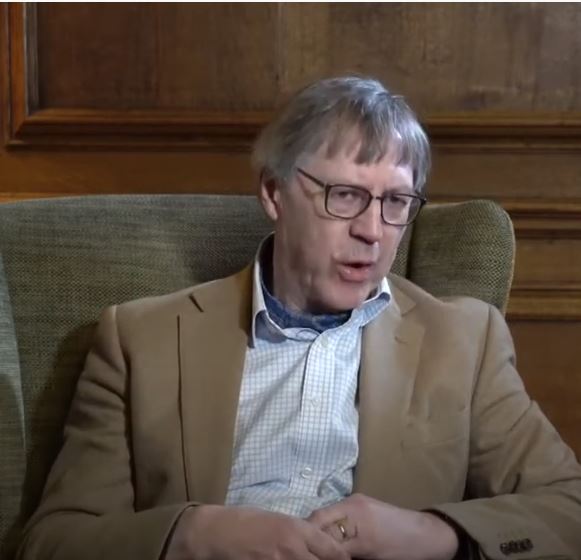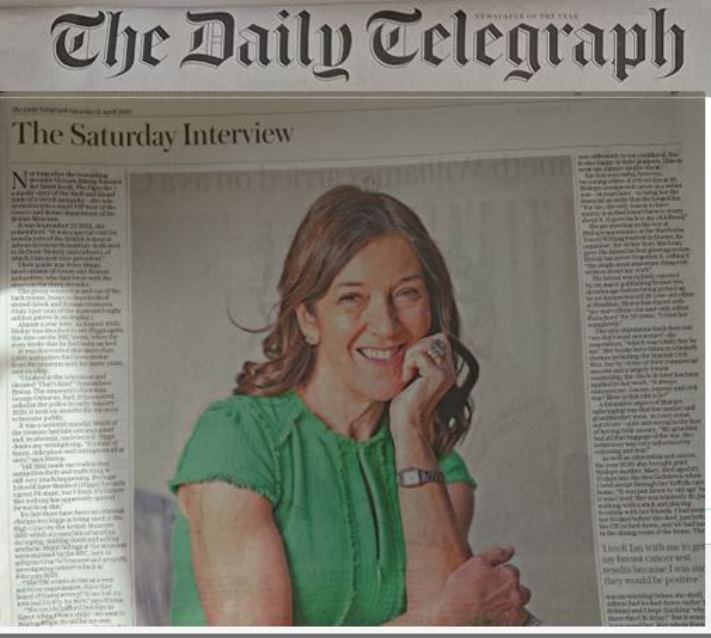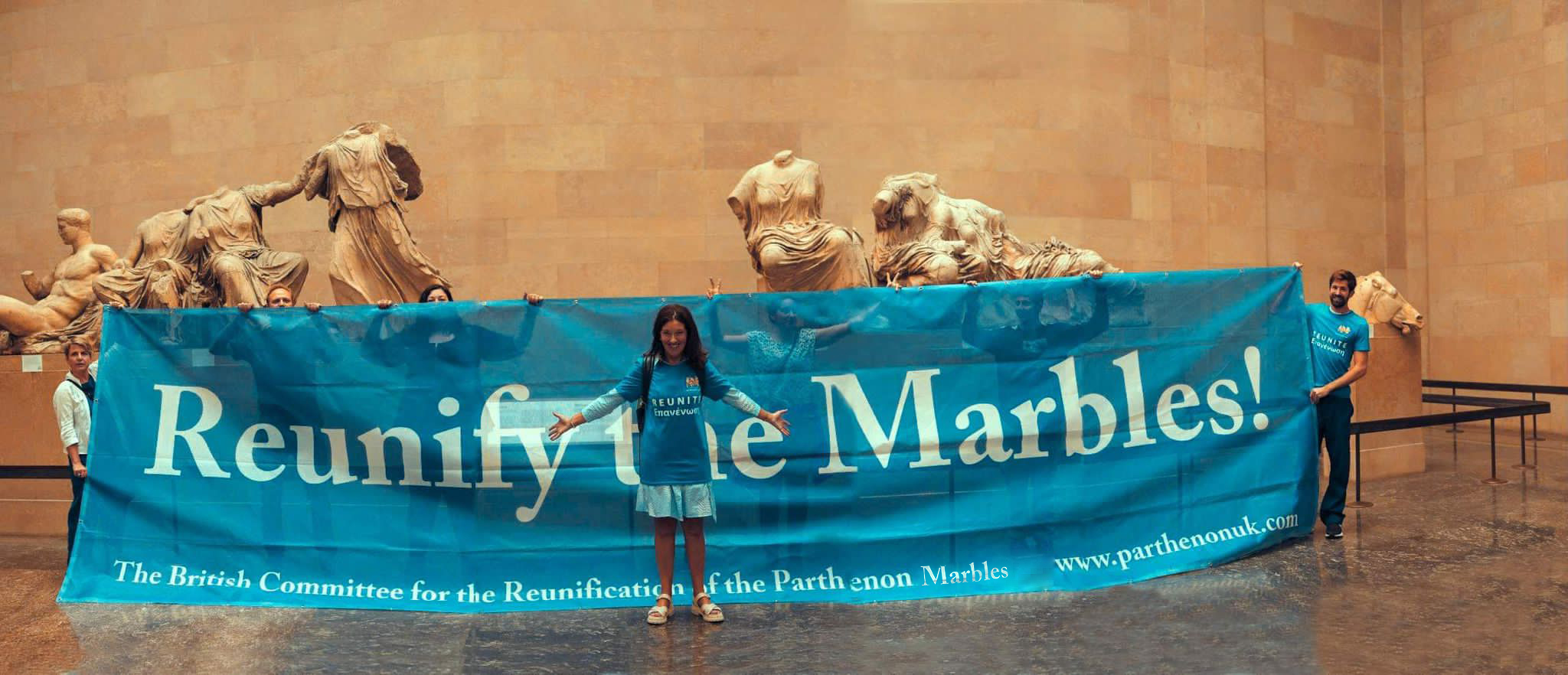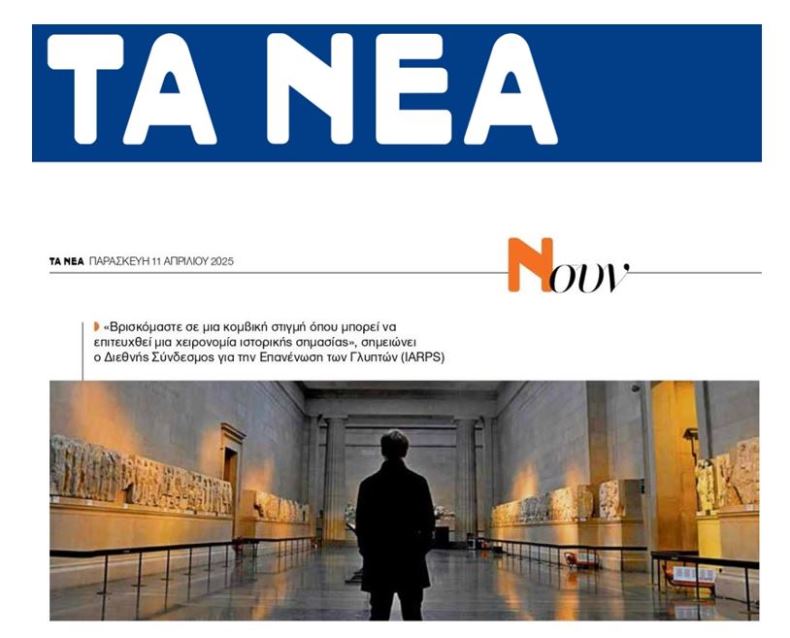Alberto Costa, the Conservation MP for South Leicestershire debated on Wednesday 30 April the British Museum Act of 1963 in relation to the Parthenon Marbles.
Westminster Hall debates enable backbench MPs from any party to raise an issue, and receive a response from the government. They do not involve a vote on a particular action or decision. Instead, the aim is to: raise awareness of an issue, often as part of a wider campaign, seek to influence government policy, put the views of backbench MPs, opposition parties, and the government on record.
The debate on the Parthenon Marbles started at 11:00 am on Wednesday 30 April, and took place in the Grand Committee Room, the second chamber of the House of Commons.
 Alberto Costa began: "I beg to move, that this House has considered the Parthenon marbles and the British Museum Act 1963.
Alberto Costa began: "I beg to move, that this House has considered the Parthenon marbles and the British Museum Act 1963.
It is a pleasure to serve under your chairmanship, Mr Vickers. I declare at the outset that I am the chair of the all-party parliamentary group for Greece.
I am here today not for Greece but for my South Leicestershire constituents—who, like the constituents of many colleagues, are highly cultured people—and for all British people, who I think could benefit from a deal with Greece on the Parthenon marbles. The discussion about the Parthenon marbles, which reside in the British Museum, is very well known. I want to highlight at the outset that this is not a debate about the background to how the British Museum acquired these marbles, nor is it a debate about apportioning blame or arguing that the British Museum, its trustees or the British people have some form of moral responsibility to return these artefacts.
The sole and exclusive purpose of this debate is to put forward a proposition to benefit my South Leicestershire constituents and the constituents of all MPs across the United Kingdom, on whether a new and positive opportunity has presented itself to the United Kingdom, having left the European Union, to decide how it wishes to forge stronger relationships with each EU member state."
The Telegraph reported on this debate the day before stating that Mr Costa was looking for ways to entice cultural cooperation with regards to the Parthenon Marbles. He suggested that a request could be made to the Acropolis Museum to wave the entrance fee for British visitors. That Greece offered rotating exhibitions of Greek treasures not yet yet seen outside of Greece and these could be shared across a umber of British museums. He was keen that no blame be proportioned nor that there was the need to rewrite history, but he felt it was about seizing post-Brexit opportunities for both the UK and Greece by embarking on "friendship, mutual respect and imagination in cultural cooperation."
During the debate, Mr Costa went on to ask four questions addressed to Sir Chris Bryant, the Minister for Creative Industries, Art and Tourism. Sir Chris Bryant is the Labour MP for Rhondda and Ogmore, and has been an MP continually since 07 June 2001. He currently holds the Government posts of Minister of State (Department for Culture, Media and Sport), and Minister of State (Department for Science, Innovation and Technology).
 Minister Bryant responded at length, including stating: "The important point that I am trying to clarify—because I think there has been some misunderstanding—is that under existing law, it would be impossible for there to be a permanent or indefinite loan. The trustees would be required, in seeking a licence to export, to show that they were absolutely certain that the items were returning. I do not think that would be easy if they had arranged a permanent or indefinite loan —the point being that we would have to change the law. Member may ask is whether we are intending to change the law. We have no intention to change the law."
Minister Bryant responded at length, including stating: "The important point that I am trying to clarify—because I think there has been some misunderstanding—is that under existing law, it would be impossible for there to be a permanent or indefinite loan. The trustees would be required, in seeking a licence to export, to show that they were absolutely certain that the items were returning. I do not think that would be easy if they had arranged a permanent or indefinite loan —the point being that we would have to change the law. Member may ask is whether we are intending to change the law. We have no intention to change the law."
To read the whole debate, follow the link here.
Yiannis Andritsopulos, correspondent in the UK for Greece's Ta Nea newspaper also reported that "the Parthenon Marbles debated in the House of Commons today, with a new question on an 'indefinite loan' of the sculptures, is another strong sign that pressure on London to reunite the masterpieces of classical antiquity remains unabated."
Dennis Mendoros, BCRPM member sent this message: "We thank Alberto Costa MP for this debate and continue to hope that this long-standing request is considered by the UK government in line with the ethical responsibilities that museums worldwide are embracing. UK’s efforts to facilitate the reunification of the Parthenon Marbles would be addressing cultural preservation and restitution of a peerless collection of sculptures that deserve our collective, global respect. These ancient, surviving treasures could be viewed in the context of the Parthenon, which still stands, and this is Greece's only ask.”
We are also reminded that on 08 February 2022, Lord Alf Dubs brought up the question of the the Parthenon Marbles in the House of Lords and it was the Under-Secretary of State, Department of Digital, Cultural, Media and Sport, Lord Parkinson of Whitley Bay (Conservative) that responded in the same vein as Sir Bryant (Labour) did this week on Wednesday.
Alf's words stressing the uniqueness of these sculptures: "In the British Museum there are over 108,000 Greek artefacts of which six and half thousand are currently on display but more importantly will he accept that my plea that we should consider returning the Parthenon Marbles is based on the fact that they are a unique piece of art. That they belong together and have a proud history in terms of the Greek historical traditions, surely we should think again."


